Since the beginning of liberalism in Portugal in the 19th century, several parties have, by gaining representation in parliament, continued the liberal ideology in contemporary Portuguese politics. But after the initial fervor of the Liberal Revolution of 1820 and the outcome of the Liberal Wars (1828–1834) during the 19th century, liberalism was relegated to a secondary role in Portuguese politics and government and even outlawed for periods of time. The first fully-fledged liberal party founded as such to have a seat in the Portuguese Parliament since the end of the First Portuguese Republic (1910–1926), was the Liberal Initiative, in 2019.
This article gives an overview of liberalism in Panama. It is limited to liberal parties with substantial support, mainly proved by having had a representation in parliament. The sign ⇒ means a reference to another party in that scheme. For inclusion in this scheme it is not necessary that parties labeled themselves as a liberal party.

The First Portuguese Republic spans a complex 16-year period in the history of Portugal, between the end of the period of constitutional monarchy marked by the 5 October 1910 revolution and the 28 May 1926 coup d'état. The latter movement instituted a military dictatorship known as Ditadura Nacional that would be followed by the corporatist Estado Novo regime of António de Oliveira Salazar.
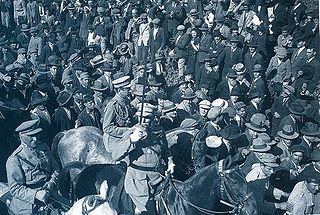
The 28 May 1926 coup d'état, sometimes called 28 May Revolution or, during the period of the corporatist Estado Novo, the National Revolution, was a military coup of a nationalist origin, that put an end to the unstable Portuguese First Republic and initiated 48 years of corporatist and nationalist rule within Portugal. The regime that immediately resulted from the coup, the Ditadura Nacional, would be later refashioned into the Estado Novo, which in turn would last until the Carnation Revolution in 1974.

The Portuguese Republican Party was a Portuguese political party formed during the late years of the constitutional monarchy that proposed and later brought about the replacement of the monarchy with the Portuguese First Republic.
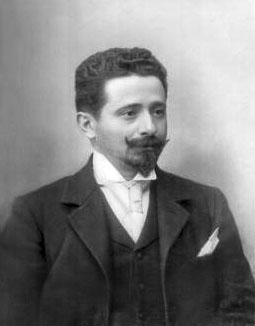
The Democratic Party, officially known as the Portuguese Republican Party, was a Portuguese centre-left political party during the Portuguese First Republic. It was also the self-proclaimed successor to the original Portuguese Republican Party, which had been behind the revolution that established the Portuguese First Republic in 1910.
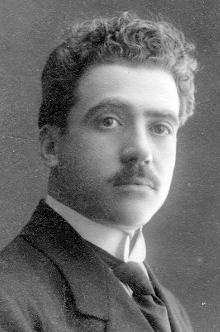
Domingos Leite Pereira was a Portuguese politician of the Portuguese First Republic. He had degrees in theology and literature of the University of Coimbra. He helped to improve the relationships between the republic and the Catholic Church during his government.

The Union of Puerto Rico, also known as the Unionist Party, was a major political party in Puerto Rico in the early 20th century. The Union of Puerto Rico was known as the dominant political party of the island from 1904 to 1932. UPR founder Luis Muñoz Rivera also founded La Democracia, which effectively acted as the UPR publication. On 19 February 1904, the Union of Puerto Rico party became the first mass party to advocate for independence for Puerto Rico in the form of a sovereign nation.
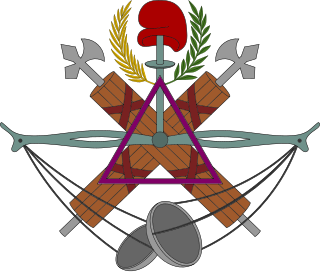
The Radical Republican Party, sometimes shortened to the Radical Party, was a Spanish Radical party in existence between 1908 and 1936. Beginning as a splinter from earlier Radical parties, it initially played a minor role in Spanish parliamentary life, before it came to prominence as one of the leading political forces of the Spanish Republic.

Fascism in South America encompasses an assortment of political parties and movements modeled on fascism. Although the ideology originated in and is primarily associated with Europe, fascism crossed the Atlantic Ocean during the interwar period and influenced South American politics. In particular, Italian fascism had a deep impact in the region, both directly and indirectly.

The Republican Party was a political party in Brazil. The PR was founded by former president of Brazil Artur Bernardes in 1945 and operated almost solely in Minas Gerais. It succeeded the old, local republican parties in the states of Minas Gerais, São Paulo, Maranhão, Pernambuco, and Paraná. The party was shut down in 1965, when all political parties were abolished by the military dictatorship.
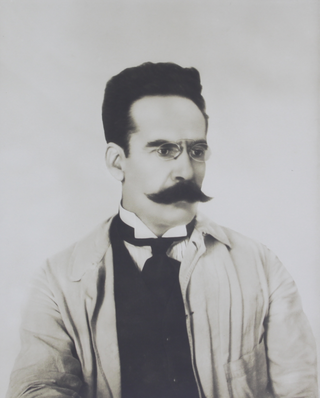
Manuel de Brito Camacho a Portuguese military officer, writer, publicist and politician, who among other positions, was Minister of Public Works, Commerce and Industry (1910–1911) and Republican High Commissioner to Portuguese Mozambique. He was the founder of the Partido Unionista, and director of the newspaper A Luta, the mouthpiece of the same Party.

Bloody Night is the name by which the radical revolt that took place in Lisbon, on the night of 19 October 1921, became known. During the day, a coup led António Granjo's government to resign, but President António José de Almeida resisted appointing the rebels' government. During the night, a riot led by a "ghost truck" led by Abel Olímpio resulted in five people associated with the Sidonist regime being killed and one being gravely injured.
The Mineiro Republican Party was a Brazilian political party founded on 4 June 1888 and active until its extinction on 2 December 1937 by Decree No. 37 – issued by Getúlio Vargas during the Estado Novo – which abolished all political parties in Brazil. It was one of Brazil's two most powerful parties during the First Brazilian Republic along with the Paulista Republican Party.

Parliamentary elections were held in Portugal on 29 January 1922. The Democratic Party emerged as the largest in Parliament, winning 74 of the 163 seats in the House of Representatives and 37 of the 70 seats in the Senate.

Parliamentary elections were held in Portugal on 8 November 1925. The result was a victory for the Democratic Party, which won 83 of the 163 seats in the Chamber of Deputies and 39 of the 70 seats in the Senate. Following a military coup in 1926 and the subsequent Estado Novo period, the 1925 elections were the last truly multi-party elections in Portugal until the 1975 Constituent Assembly elections.

The Union of Economic Interests was a right-wing political party in Portugal. It was officially established in 1925, and represented the interests of conservative bankers, businessmen and managers. It only took part in the 1925 elections, in which it won six seats in the House of Representatives. It was officially disbanded in 1937, during the Estado Novo.













